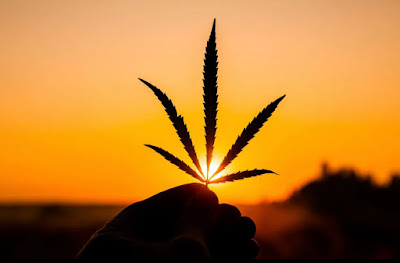Thailand legalised marihuana for medical use a couple of years ago — so far the only one in Asia — and is now taking it up a notch.
Thailand, the sole Asian country to legalise cannabis for medical use, is so keen on educating locals about the drug's benefits that tourism and sports minister Phiphat Ratchakitprakarn this month unveiled a medical marijuana tour that will cover eight provinces, set to kick off next year.
And now, the United Nations just passed a resolution to delist marijuana as a dangerous drug.
Predictably Singapore, voted against, urging us to "hold the line" against marijuana, based on "rationality and science". Because the War on Drugs has been such a roaring success.
China, too, voted against:
China's delegate, Zhang Jun, likewise said that despite the vote, the country would strictly control cannabis to protect its citizens from "harm and abuse".
Funny that. I remember going to the Ming Tombs outside Beijing for a picnic in October 1976. They are fabulous and in those days, we were virtually the only ones there. That day they were surrounded by fields of marijuana, eight foot tall. I chatted to a local peasant, puffing away in his dope-filled foot-long pipe. He told me they grew marijuana because it was cheaper and easier than tobacco. “It’s also good medicine”, he said. He didn’t strike me as “harmed and abused”, this craggy dope farmer. Just happy. Growing his crop amongst the tumbling glories of a glorious empire.
A year later, October 1977, I accompanied Australia's then ambassador to China, Hugh Dunn, to Harbin in north-east China. I was his companion-cum-interpreter. On the long car ride in from the airport, flat fields stretching to the distant horizon, I saw the main crop was marijuana, tall, bushy, healthy, drooling with buds in the late summer, late afternoon sunshine, growing so happy in the deep, black loams of northern China. I didn't tell Hugh. Later that evening when I judged him safe in bed, I popped "out for a walk", snaffled a branch this fine Harbin Green and took it home to Beijing to cure in the oven. Thank goodness there is a statute of limitations on theft of a medicinal plant and intra-provincial trafficking.
A year later, October 1977, I accompanied Australia's then ambassador to China, Hugh Dunn, to Harbin in north-east China. I was his companion-cum-interpreter. On the long car ride in from the airport, flat fields stretching to the distant horizon, I saw the main crop was marijuana, tall, bushy, healthy, drooling with buds in the late summer, late afternoon sunshine, growing so happy in the deep, black loams of northern China. I didn't tell Hugh. Later that evening when I judged him safe in bed, I popped "out for a walk", snaffled a branch this fine Harbin Green and took it home to Beijing to cure in the oven. Thank goodness there is a statute of limitations on theft of a medicinal plant and intra-provincial trafficking.
The Chinese have had marijuana on their list of herbal remedies for millennia. It's only when some people — not me, other people — started noticing the huge plantings in northern China that they banned it. Shame.
